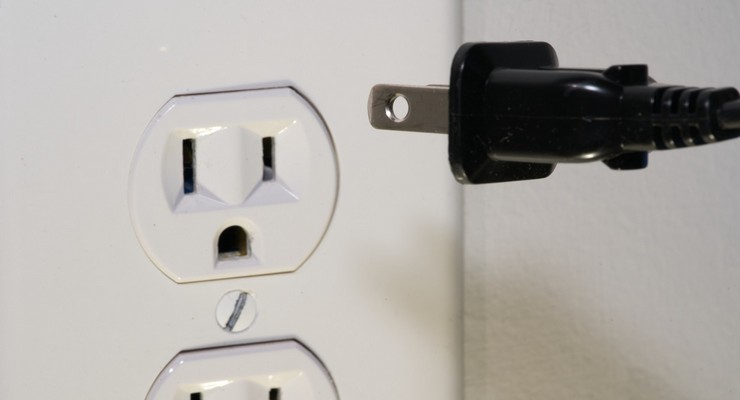
Caltech students, postdoctoral scholars, staff, and faculty drove science outreach and mentoring efforts that benefited and built ties in the local and Caltech communities.
Science Journeys
More than 2,000 children came to campus on field trips to five Science Journeys events. In this long-running program, postdoctoral scholars and graduate students learn to explain their research clearly in public talks for middle- and high-school classes, advanced elementary school classes, and homeschooled children. Each scientist also shares their personal journey into science and what keeps them strong, from curiosity to faith to family and teacher support.
Watson Lectures
At seven Watson Lectures, more than 7,000 audience members connected with Caltech research and innovation. The 102-year-old series now features music, food, and activities before each talk. This season and last, research groups and clubs designed and led activities linked to the evening’s topic, from hands-on earthquake models to a display of historic electric cars.
PST ART: Art and Science Collide
Artists, archivists, historians, and scientists collaborated to make Caltech’s campus a destination in Getty’s landmark arts event, PST ART: Art & Science Collide. The PST ART Crossing Over exhibition featured contemporary art and case studies that displayed and interpreted scientific models, instruments, books, illustrations, images, and films from Caltech’s archives. PST ART events, including the Opening Doors series, featured celebrity actors and touring artists and attracted thousands of people to Caltech’s campus to learn, reflect, and be entertained. Researchers and students participated as performers and panelists.
AIM Math Party
The staff of the American Institute of Mathematics (AIM) and several professors and postdoctoral scholars who are friends of AIM designed a Math Party that drew hundreds of families and individuals to campus for hours of games and other activities. The event celebrated AIM’s 30th birthday and its move to Caltech.
Caltech Astronomy Outreach
Through Caltech Astro Outreach, students, postdoctoral scholars, research staff, and professors shared insights into the universe in monthly Stargazing Lectures, which feature short talks, Q&As, and guided telescope viewing. About 1,000 people attended the celebratory 100th lecture, headlined by Nobel Laureate Kip Thorne, the Richard P. Feynman Professor of Theoretical Physics, Emeritus. In 2024, Caltech Astro Outreach reached 23,000 people through 50 events: eclipse viewings, educational events at pubs, outreach on sidewalks and trains and in schools, the Stargazing Lectures, and activities at national parks, including the Dark Sky Festival in Death Valley.
Explore Caltech
The Caltech Postdoctoral Association organized the return of the Explore Caltech event, where children and adults drove robots, roasted marshmallows with solar power, and searched for the queens among four species of ants. Postdoctoral scholars shared their research at 15 interactive stations, in talks, and in panel discussions, building communication skills in real time.
Rise Tutoring
The Rise tutoring program, which helps local schoolchildren succeed in math and science, has thrived. Over the 2023–2024 academic year, 159 Caltech students provided 3,547 hours of tutoring to 180 local students. Rise is one of several service programs of the Caltech Y, a nonprofit that students founded in 1916 and still lead to this day.
Young Legends Tutoring
The undergraduate student government (Associated Students of Caltech, or ASCIT) sustained its tutoring relationship with the Young Legends, a program of the San Gabriel Valley chapter of the National Council of Negro Women. For its successes over several years, ASCIT won the organization’s Community Education Award.
PUSD Science Fest
At least a dozen Caltech students, postdoctoral scholars, and research scientists, as well as JPL engineers and researchers, led activities at the second PUSD Science Fest. The community science fair, one of the largest in the nation, is hosted at a local high school and organized by a former Caltech postdoctoral scholar. Through Caltech’s Center for Teaching, Learning, and Outreach (CTLO), students led demonstrations and presentations in classrooms and at individual school science fairs, taught weekly science lessons at a local school, and helped local STEM teachers develop their curricula.
Earthquake Outreach
With a seismically active year that included more than a dozen local earthquakes of magnitude 4.0 or greater, seismologists at Caltech and its long-standing partner, the USGS, frequently answered questions for news programs and the public. Schoolchildren continued to enjoy field trips to Caltech’s renowned Seismo Lab, where they learned how to protect themselves during earthquakes and heard how scientists study Earth’s dynamics.
Summer Research with CTLO Support
With support from Caltech’s CTLO, faculty and their research groups mentored high school students and teachers in research immersions such as the six-week Summer Research Connection and the yearlong faculty-founded SEAL program (it began as the Solar Energy Activity Lab, or SEAL). A team of seven SEAL participants, the “PFAS Annihilators,” searched for ways to degrade PFAS: toxic compounds that are so hard to remediate they’ve been nicknamed “forever chemicals.” The team presented its work in Paris at the International Genetically Engineered Machine (iGEM) 2024 contest, returning home with a silver medal and the prize for best model.
Caltech Connection
Faculty member Scott Cushing again led Caltech Connection, which he envisioned as “a program for LA-area people who have that scientific knack but have no way or no confidence to make their first step into the scientific realm.” Caltech graduate students and postdoctoral scholars volunteered to mentor participants and guide their research activities. Nearly 50 local students from Pasadena City College (PCC) and other nearby colleges participated, about 70 percent of whom also work part time to afford college.
Diversification Initiative through Veteran Education (DIVE)
Bioengineering graduate student and US Navy veteran Alex Johnson and Zoila Jurado (PhD ‘24) co-led a 10-week summer research program at Caltech that helps veterans enrolled at local community and four-year colleges build skills in synthetic biology and bioengineering. Johnson co-developed the Diversification Initiative through Veteran Education (DIVE) program with his advisor, Richard Murray, the Thomas E. and Doris Everhart Professor of Control and Dynamical Systems and Bioengineering, and with Ken Hargreaves, associate vice president for civic engagement and external affairs.
Rising Tide
David Cagan, a PCC graduate who is now a Caltech graduate student, developed and led Rising Tide, which provides PCC students with an accessible introduction to chemistry and biology research techniques, advanced laboratory environments, and graduate education.
To make these programs happen, students, postdoctoral scholars, research staff, and faculty relied on management, advice, sponsorship, and support enthusiastically provided by staff. The network of support for the outreach above included the Center for Teaching, Learning, and Outreach; the Office of Strategic Communications; the Campus Arts and Culture Liaison; the Office of External Relations; the six academic divisions; the Caltech Library; Admissions; Facilities; Security and Parking Services; lab administrators; the Seismo Lab; Caltech Astro Outreach; and the staff of the Caltech Y.



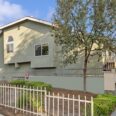


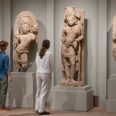
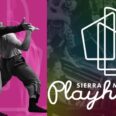


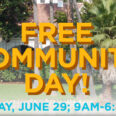



 2 comments
2 comments


